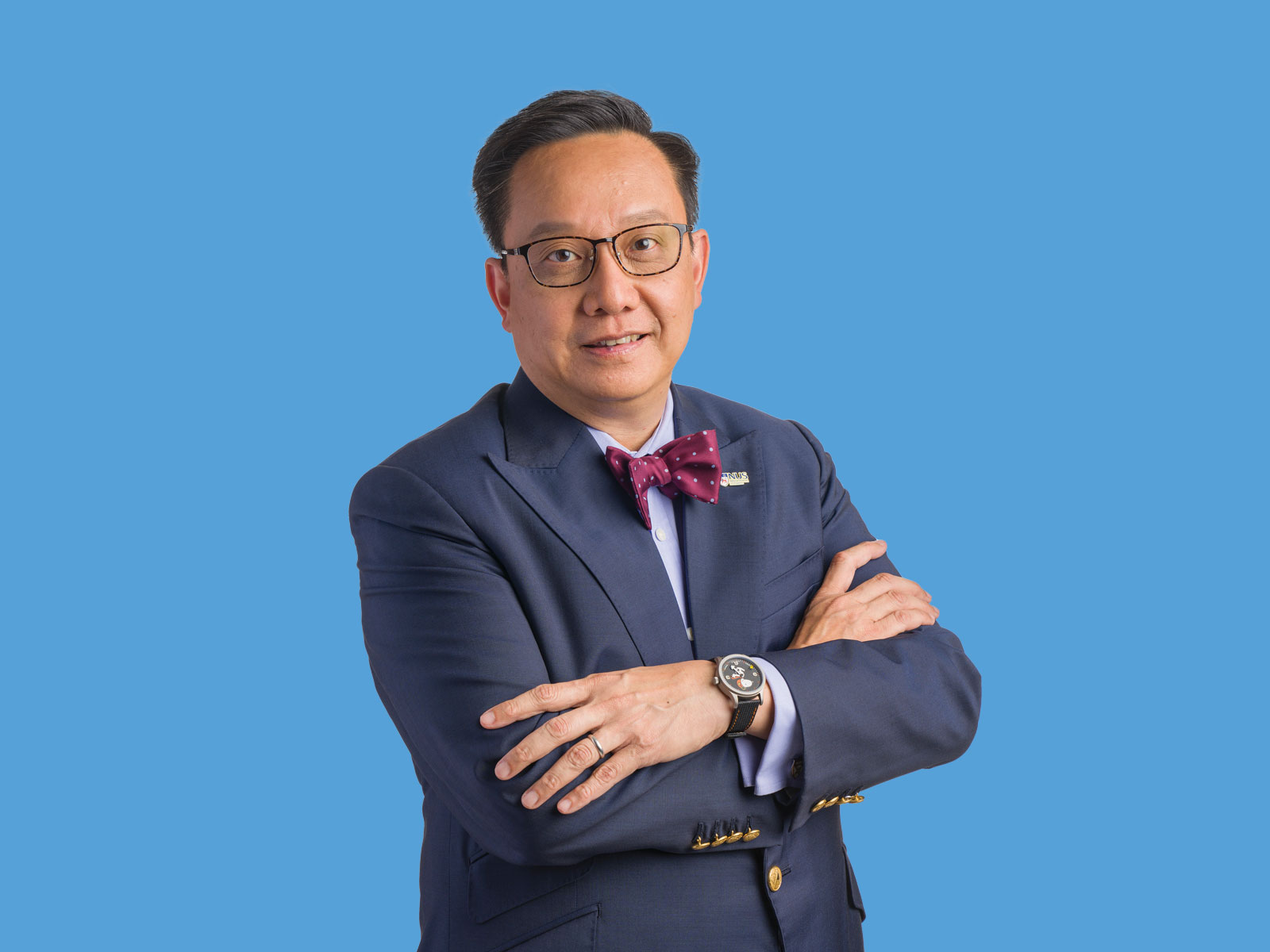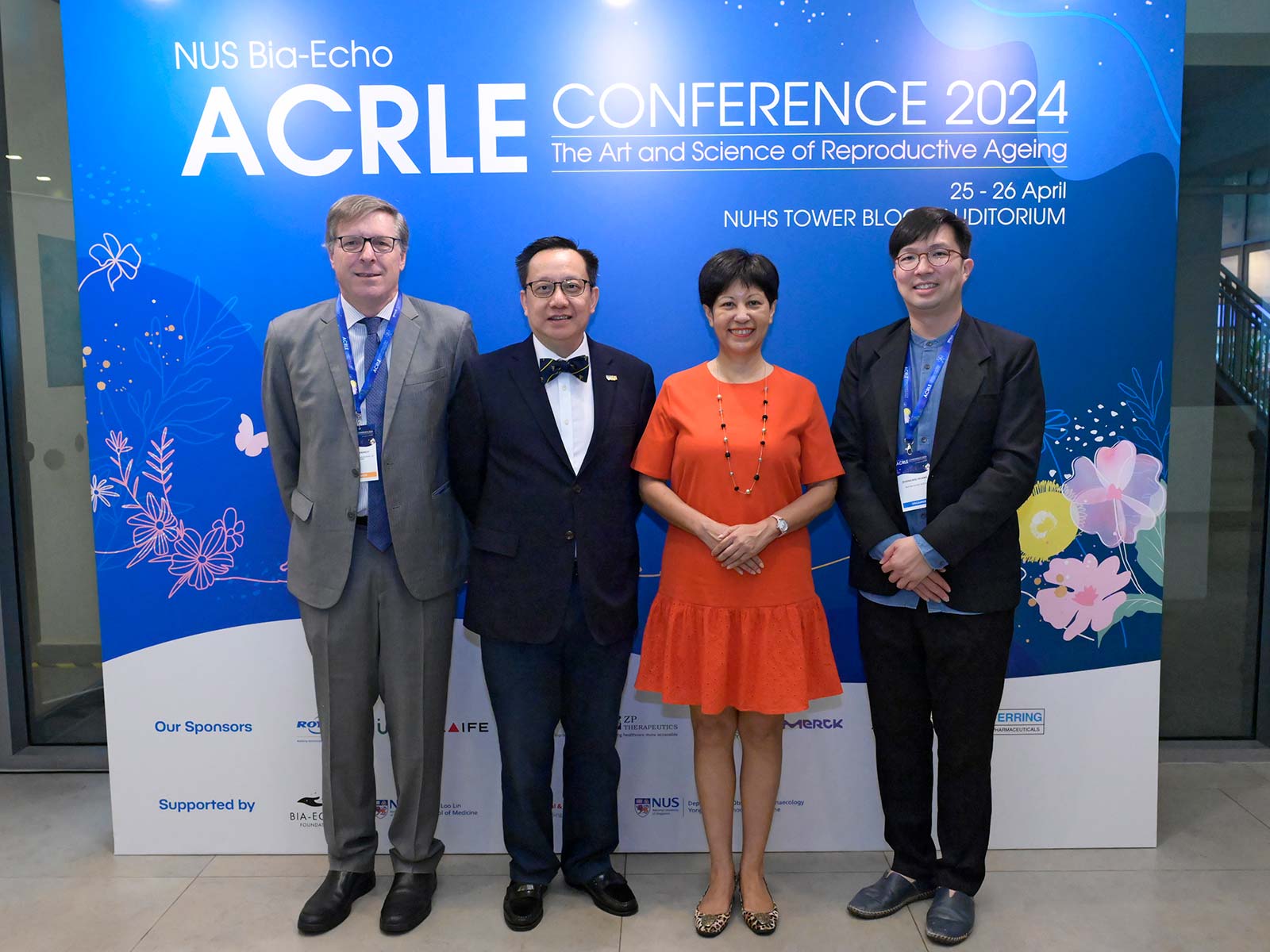
Dean’s Message
Aug 2024
DEAN’S MESSAGE

As I write this, the Medicine and Nursing Classes of 2024 are preparing to put into practise their years of learning and training—having recently joined the healthcare workforce that staffs our hospitals and clinics. In an unsettled world, many obstacles stand in our collective pursuit to inspire health for all. Experts do not feel optimistic about the outlook of the world, and many believe things will worsen in the coming years. Escalating international and regional tensions, rising global temperatures and new diseases, rapidly ageing societies and falling birth rates—these are the realities our graduates will be facing at work. But they have been equipped.
The Class of 2024 will be the first to use data and Artificial Intelligence (AI) to deliver care to patients. These young healthcare professionals will be the first generation to be able to move beyond disease and focus on promoting and optimising health and extending the lifespan of Singaporeans. We encourage them to strive to be the first generation to come up with ways to reduce the carbon footprint of healthcare, and perhaps, even help lead us towards a future of net zero carbon emissions in healthcare.
Over the past 119 years of our history, the Yong Loo Lin School of Medicine, National University of Singapore (NUS Medicine) has seen our remit and mission enlarged from the initial, single focus of training local doctors for the then-British colony’s native population to providing undergraduate and postgraduate medical education, to incorporate biomedical research. This now extends beyond our quest for better ways of dealing with disease and illness to extending the healthy lifespan of Singaporeans.
A key component of our research focuses on the reproductive health of women. While we know ovaries are one of the first organs to age in women, we do not know why and how fast. Women live a significant portion of their lives in the post-reproductive state and yet, there is little understanding on why menopause occurs. In fact, aside from fertility, the reproductive health of women is often overlooked and neglected. With more research indicating reproductive health as a marker of women’s health, there is huge impetus to advance our understanding of the intricacies and workings of the female ovary.
Another key research effort is into Major Depressive Disorder. Commonly known as “depression”, it is the most common treatable psychiatric disorder among adults in Singapore. The 2016 Singapore Mental Health Study showed that 6.3% of the Singapore adult population—or one in 16 adults (aged 18 and above)—has experienced the disorder at some point in their lifetime. Persons diagnosed with depression may present with symptoms such as persistent sadness, insomnia (or sleeping more than normal), loss of interest, lethargy, irritability, poor concentration, and in severe cases, suicidal thoughts. Mild cases may be managed with psychotherapy, while moderate to severe cases are typically managed with antidepressant medication to alleviate the symptoms. However, some patients do not respond well to medication, failing two courses of different drug treatments.
We are embarking on research into more effective treatment possibilities for treatment-resistant depression. Our scientists are working with collaborators from the Institute of Mental Health (IMH) on 2 clinical pilots—a first in Southeast Asia—to study the efficacy of personalised Transcranial Magnetic Stimulation (TMS) in treating persons with treatment-resistant depression (TRD).
Modelled after the Stanford Accelerated Intelligent Neuromodulation Therapy (SAINT) protocol—which saw 80% of subjects who had TRD achieve remission—the research will pair IMH’s clinical expertise in standard TMS with NUS Medicine’s expertise in brain MRI to personalise a treatment plan for each participant, study its efficacy and make recommendations on implementing this as a mainstream treatment.
In our 119th year, in a world beset with medical, social, geopolitical and environmental problems, the work of the School has become more critical and urgent. Our new graduates, alumni and faculty are rising to the challenges.

More from this issue



